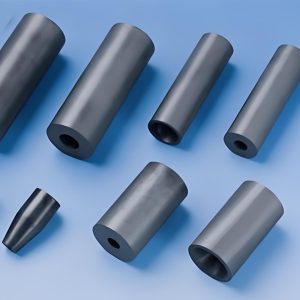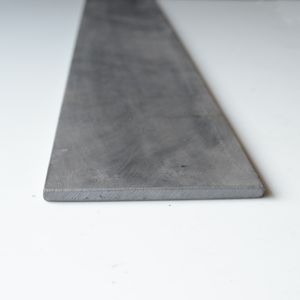Discover Premium Ceramic Products | Durability & Elegance United | Advanced Ceramics
PRODUCT PARAMETERS
Description
Introduction of Boron Carbide Ceramics
Boron carbide ceramics is an inorganic, non-metallic material with carbon and boron as its main components, and its chemical formula is B4C. Since its discovery in the early 20th century, this material has attracted a great deal of attention because of its unique physical and chemical properties. Boron carbide ceramics have an extremely high hardness, second only to diamond and cubic boron nitride, which makes it important in the field of wear-resistant materials. It also exhibits excellent corrosion resistance, high-temperature stability and low-density properties, attributes that make it ideal for the manufacture of bullet-proof vests, nozzles, bearings and other mechanical components that require high wear resistance. Boron carbide ceramics can also be prepared in a variety of shapes and sizes through different processes to meet the needs of different industries.
Characteristics of Boron Carbide Ceramics
Boron carbide ceramics are known for their excellent performance characteristics, starting with their ultra-high hardness and strength, which makes them resistant to severe abrasion and scratching, making them ideal for use in cutting tools and abrasives. Secondly, the material possesses excellent chemical stability and is less likely to react with chemicals such as acids and alkalis, even in extreme environments, making it widely used in certain key components in the chemical industry. In addition, the superior thermal stability of boron carbide ceramics and their ability to maintain structural and property stability at extremely high temperatures makes them one of the key materials in the aerospace and nuclear industries. Finally, it is worth mentioning its lightweight properties, which, due to its low density, make boron carbide ceramics an ideal option for application scenarios that require light weight but high strength. Together, these characteristics give boron carbide ceramics a wide range of applications.
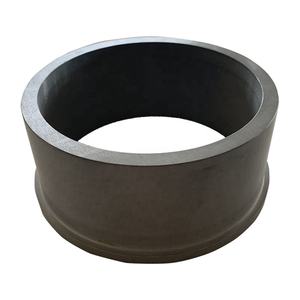
(Whole B4C Boron Carbide Ceramic Tile for Protective Equipment High Hardness Hexagonal Protection Plate)
Specification of Whole B4C Boron Carbide Ceramic Tile for Protective Equipment High Hardness Hexagonal Protection Plate
B4C boron carbide ceramic tiles are designed for protective tools requiring high solidity and reliable performance. The material contains boron and carbon atoms organized in a hexagonal crystal framework. This structure gives phenomenal solidity, ranking 3rd after diamond and cubic boron nitride. The hardness reaches up to 30-35 Grade point average, making it reliable versus abrasion, penetration, and high-velocity impacts.
The tiles are light-weight, with a density of roughly 2.52 g/cm ³. This minimizes total weight in body shield, car plating, or workers defense gear. The low density does not jeopardize stamina. The product preserves structural integrity under extreme tension, ideal for ballistic shields, aerospace elements, and commercial machinery parts.
Boron carbide displays high chemical stability. It withstands deterioration from acids, alkalis, and various other hostile materials. This makes certain sturdiness in harsh environments, including chemical processing plants or marine applications. The thermal stability is remarkable, holding up against temperatures approximately 1,400 ° C without significant destruction. This makes it excellent for high-temperature protecting or heater elements.
The hexagonal plates distribute impact power efficiently. The geometric layout reduces stress and anxiety focus, decreasing split formation. Custom dimensions and densities are readily available, adjusting to certain equipment needs. Common density varieties from 5 mm to 25 mm, stabilizing security and weight.
Manufacturing involves advanced sintering strategies. Warm pushing makes sure uniform thickness and marginal porosity, enhancing mechanical residential properties. Surface area finishing options consist of brightened or rough appearances, depending on application demands. Sleek surfaces decrease rubbing in moving parts, while harsh textures enhance adhesion in composite shield systems.
B4C ceramic tiles meet armed forces requirements for ballistic defense. They are tested against armor-piercing projectiles and fragmentation. Performance is consistent throughout temperatures from -50 ° C to 800 ° C. Electrical insulation properties add worth in digital or electrical protecting applications.
The product is safe and eco inert. It does not release dangerous substances under normal problems. Upkeep is minimal, needing just routine examinations for surface damage. Substitute is straightforward as a result of modular plate layouts.
Expense considerations reflect the sophisticated production procedure. Lengthy life span and minimized downtime balanced out first financial investment. Personalized orders include customized dimensions, side therapies, and placing remedies. Technical support is readily available for combination right into existing protective systems.
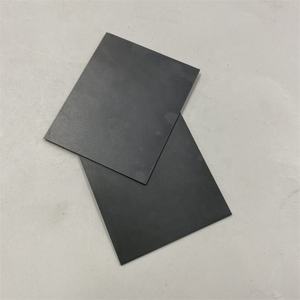
(Whole B4C Boron Carbide Ceramic Tile for Protective Equipment High Hardness Hexagonal Protection Plate)
Applications of Whole B4C Boron Carbide Ceramic Tile for Protective Equipment High Hardness Hexagonal Protection Plate
B4C boron carbide ceramic tiles are advanced materials used in protective tools. Their high solidity and hexagonal framework make them suitable for stopping high-speed effects. These tiles function well in body shield, lorry armor, and individual defense gear. The hexagonal shape enables tight arrangement, lowering gaps and enhancing protection.
Boron carbide is among the hardest materials, second only to diamond. This makes it reliable versus bullets, shrapnel, and rough pressures. Military and law enforcement utilize these tiles in armors and helmets. The lightweight nature of boron carbide decreases pressure on individuals compared to steel or alumina plates.
In industrial settings, B4C tiles shield equipment from wear and tear. Mining and drilling equipment deals with extreme conditions. Boron carbide plates prolong the life-span of devices subjected to rubbing and high pressure. Their resistance to chemical rust adds value in settings with acidic or alkaline materials.
Aerospace applications gain from boron carbide’s thermal security. It holds up against extreme temperature levels during re-entry or high-speed flights. Hexagonal plates shield important elements from heat and debris. The material’s reduced thickness aids keep airplane and spacecraft light-weight without giving up safety and security.
Sports and leisure gear additionally use these tiles. Bike motorcyclists and severe sports professional athletes need light-weight defense. B4C plates in knee pads, joint guards, and breast guards provide high-impact resistance. The hexagonal layout permits versatile motion while keeping defense.
Boron carbide floor tiles are compatible with composite shield systems. They layer well with materials like Kevlar or polyethylene. This combination improves total security by distributing power throughout layers. The ceramic tiles take care of direct hits, while backing products absorb residual pressure.
Toughness is an essential advantage. B4C ceramic withstands fracturing under anxiety far better than lots of options. Routine usage in high-threat atmospheres confirms its integrity. Upkeep is minimal, as the ceramic tiles do not degrade rapidly.
The hexagonal boron carbide plate is versatile. It adjusts to bent surfaces in body armor or complicated equipment parts. Customized shapes and sizes satisfy certain demands. This flexibility expands its use across industries calling for reliable defense remedies.
Price stays more than conventional materials, however performance warrants the financial investment. Long-lasting financial savings originated from decreased substitute frequency and improved safety. Industries prioritize employee and devices protection, making B4C ceramic tiles a practical option.
Military, commercial, aerospace, and noncombatant industries count on boron carbide ceramic floor tiles. Their mix of solidity, light-weight style, and adaptability addresses varied difficulties. The hexagonal structure enhances performance, confirming necessary in high-risk situations.
Company Introduction
Advanced Ceramics founded on October 17, 2014, is a high-tech enterprise committed to the research and development, production, processing, sales and technical services of ceramic relative materials and products.. Since its establishment in 2014, the company has been committed to providing customers with the best products and services, and has become a leader in the industry through continuous technological innovation and strict quality management.
Our products includes but not limited to Silicon carbide ceramic products, Boron Carbide Ceramic Products, Boron Nitride Ceramic Products, Silicon Carbide Ceramic Products, Silicon Nitride Ceramic Products, Zirconium Dioxide Ceramic Products, Quartz Products, etc. Please feel free to contact us.(nanotrun@yahoo.com)

Payment Methods
T/T, Western Union, Paypal, Credit Card etc.
Shipment Methods
By air, by sea, by express, as customers request.

5 FAQs of Whole B4C Boron Carbide Ceramic Tile for Protective Equipment High Hardness Hexagonal Protection Plate
What is boron carbide ceramic tile used for? Boron carbide ceramic tiles protect against high-impact threats. They are common in body armor, military vehicles, and industrial equipment. The material stops bullets, shrapnel, and abrasive wear. It is chosen for its lightweight yet ultra-hard structure.
How hard is boron carbide compared to other materials? Boron carbide is one of the hardest materials. It ranks just below diamond and cubic boron nitride. Its hardness measures around 9.3 on the Mohs scale. This makes it harder than alumina or silicon carbide. It resists scratches and erosion better than most ceramics.
Can these tiles withstand high-impact forces? Yes. The hexagonal structure of boron carbide tiles spreads impact energy evenly. This reduces cracks or breaks under stress. They are tested to stop armor-piercing rounds. The tiles may fracture under extreme force but still prevent penetration.
Are the tiles resistant to extreme temperatures? Boron carbide handles temperatures up to 2,200°C in inert environments. It stays stable in high-heat settings like industrial machinery. Oxidation can occur above 500°C in air. This limits long-term use in oxygen-rich, high-temperature conditions.
Can the tiles be customized for different equipment? Yes. Manufacturers cut boron carbide into shapes matching specific gear. Thickness and size adjust based on protection needs. The tiles bond to fabrics, metals, or composites. Custom designs ensure compatibility with helmets, vests, or vehicle panels.
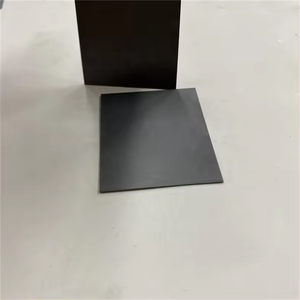
(Whole B4C Boron Carbide Ceramic Tile for Protective Equipment High Hardness Hexagonal Protection Plate)
REQUEST A QUOTE
RELATED PRODUCTS
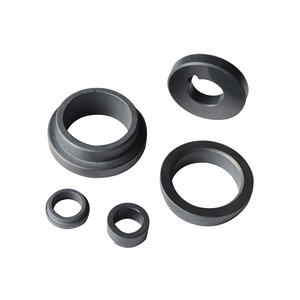
Superfine Abrasive Material Boron Carbide F400 F800 B4C Powder China Boron Carbide for Wear Resistance Boron Carbide Ceramic Rod
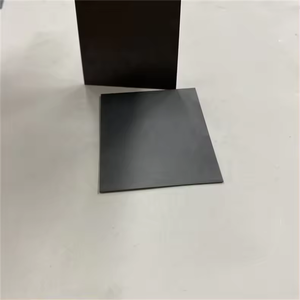
Best Boron Carbide Ceramic Nozzle for Sand Blasting
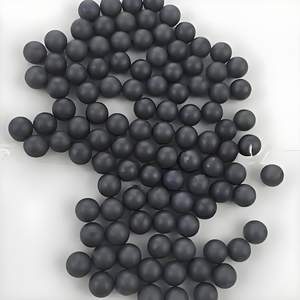
Boron Carbide Ceramic Core
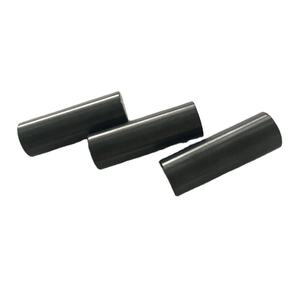
Hot ing Good Ceramic slip Silicon Carbide bar Boron Carbide Strip
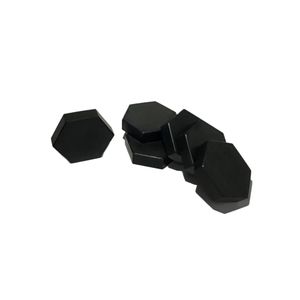
Hot Press Sintering Boron Carbide B4C Ceramic Sheets
